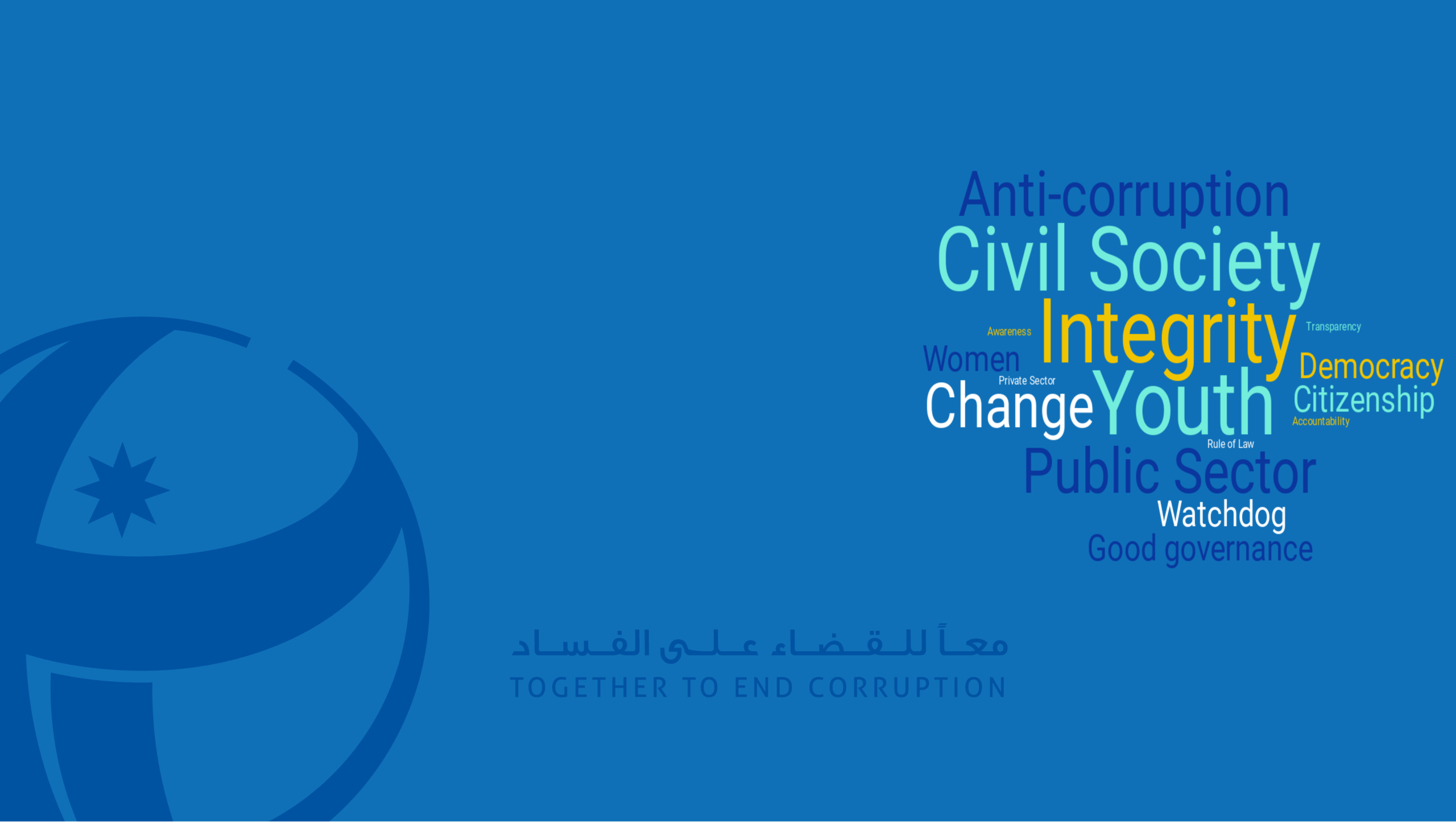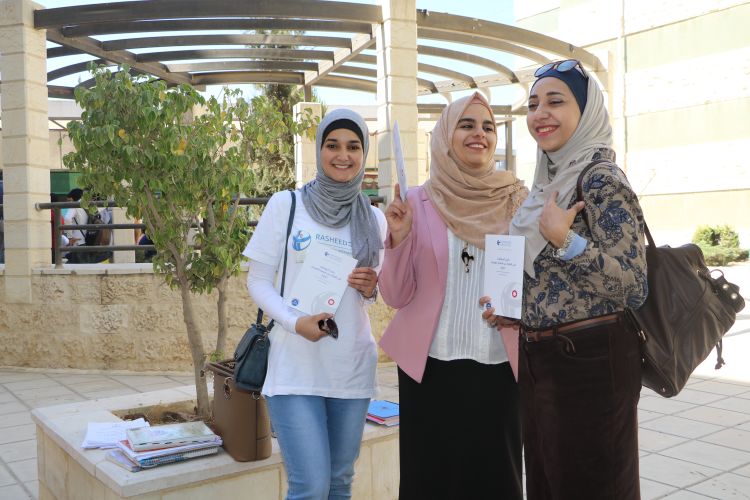Next Generation of Corruption Fighters

Youth under 30 years old, represent 70% of the Jordanian population.
For two decades, policies, national strategies and royal directives have highlighted youth as the main population segment in the economic, social and political discourse. They also admitted their importance as assets in the sustainable development, but also as the main pillars of the human development process.
Despite making up such a large part of society, youth do not enjoy the power that often comes with being a majority, and are not well represented in government decisions making bodies.
Here at Rasheed TI-JO, we are trying to change the way the government deals with corruption, and also help young Jordanians understand their democratic rights and the political system, so that they can play a role in local and national issues and unleash their potential as a force for good in the country.
Youth are likely be active participants in civil society and in the democratic processes if they understand principles like transparency, ethics, and accountability.
One of our goal is to educate them on these principles so that they can implement them in their future professional life.
The main problem in Jordan is that youth feel both scared to report corruption when they are faced with it, and they also don't think it will make any difference if they report it.
Since 2013, we ran a variety of projects, using different tools to change this mindset, and remind them of the power of many.
Training
Through our projects, we often train youth on different subjects, in order to provide them with opportunities, tools, and capacities to enable them to play their role in the fight against corruption.
The following are a few examples of the training we have provided to the youth.
1. Transparency
2. National Integrity System
3. Effects of corruption on the everyday life
4. Research skills for policy writing
5. Participatory budgeting
6. Art and craft of debating
7. Lobbying
8. Social Medias activism
9. Medias and advocacy
10. Researches and analytical skills
11. Photography and film-making
12. Dissemination and presentation of the Citizen Manual published by our organization
Competition
In 2016, 50 young people participated in a competition on preparing policy papers on three different subjects: financial declaration, reporting corruption, and participatory budgeting.
The policy papers were then disseminated among policy makers and other stakeholders.
We also ran a competition entitled "Creative Youth" with the aim to educate young Jordanians about the importance of having qualified women in senior management positions in the public sector.
Through photography and short films, they reflected the reality and the challenges facing women leaders in the country. More than 400 youth submitted their applications.
The results of the competition were announced in conjunction with International Women’s Day on 8th of March.
One image and two short films won the competition. The winning photo was posted on Facebook and the two winning short films were posted on Rasheed TI-JO’s Facebook page and on Rasheed TI-JO’s YouTube channel.
We also held the he Moot Court Competition in 2016, aiming to refine the practical skills of law students in Jordanian universities, related to courts fair and just procedures. The courts handled the facts of a hypothetical case, and ran them according to clear and specific rules.
Debates
Three public debates were conducted in Zaha Culture Center, Princess Sumaya University for Technology and Zarqa Private University.
The Second Jordan Debate Championship 2017 was held with the participation of 14 universities.
Education
We are drafting a curriculum on Transparency, Integrity and Accountability that will include different topics, such as, what is corruption, the types of corruption, and citizenship.
This curriculum will be disseminated in all the universities of the country.
Policy papers and pledges
In the coming year, three Universities will be targeted to deliver a pledge against nepotism and favoritism at University. This youth pledge will also be for identifying nepotism and for talking about it, if it occurs through available reporting mechanisms. If the pledge is signed by 5000 students, it will be used to push for an explicit code of conduct at
We often use policy papers as an advocacy tool to set clear recommendations to policy makers.
Through our projects, we worked with youth writing policy papers in order to:
1. To strengthen efforts to increase women's participation in political life in Jordan.
2. To promote a culture of tolerance and acceptance of the other in the public sector in Jordan.
3. To highlight the role of decentralization in strengthening the national integrity system in Jordan.
This is the summary of several different projects that we implemented:
1. Sharaka: Fostering Public Finance and Asset Recovery, and Empowering People, Groups and Communities for a Corruption-Free MENA Region.
2. Women in Leadership
3. Fursan Al Adalah
4. Action for Integrity
5. Fighting Corruption Through Education
6. Young Arab Voices Program
For the full reports of these projects, please go to 'Publications'.
If you are interested in participating with us or in supporting us in the fight against corruption, please call +96265812528 or send an email to info@rasheedti.org





